At the seminar "Innovation in teaching and learning methods to adapt to the development of technology and artificial intelligence" organized by the National Economics University, Dr. Nguyen Quang Huy (School of Technology, National Economics University) assessed the advantages and challenges for lecturers and students in the face of the impact of artificial intelligence (AI).
AI is a support tool that accompanies students and lecturers in learning, teaching, and scientific research. |
For lecturers, Mr. Huy believes that AI has a positive impact in improving the quality of teaching and supporting scientific research. For students, AI helps optimize learning time and efficiency, develop thinking and active learning, and support foreign language and skill learning.
AI also poses many challenges for lecturers and students. Students' dependence on AI reduces their ability to think independently and critically, lacks information verification skills, is easily misled, uses unofficial sources, has difficulty developing personally, and faces competition in work, etc.
Risks to academic integrity
Dr. Le Quang Minh - Deputy Director of the Institute of Information Technology, Hanoi National University - said that a survey at Hanoi National University showed that over 77% of surveyed lecturers have applied AI.
The majority of lecturers positively evaluated the application of AI in teaching (a total of 68.2% said that AI was very effective or effective). However, 25.9% of lecturers did not really evaluate AI as highly effective.
Source: Dr. Le Quang Minh - Deputy Director, Institute of Information Technology, Vietnam National University, Hanoi. |
The survey results also showed that the biggest factors affecting lecturers' use of AI are lack of knowledge and skills (over 70%); lack of time (over 57%); lack of facilities (nearly 50%); lack of support from schools (over 42%).
Experts named challenges and limitations in using AI including: dependence on AI (about 88% of students); ethics and academic integrity (over 82%).
Experts say it is necessary to consider ethical and integrity issues when using AI in education and research. Because AI algorithms can sometimes be biased, leading to unfair treatment of certain groups of students. Collecting and analyzing large amounts of learner data raises privacy issues. It is essential that AI tools are transparent in their operating processes and decision-making.
Mr. Minh affirmed that using AI will have potential risks that schools, lecturers, and students need to identify. That is, integrating AI in education poses risks to academic integrity. AI tools can make it easier for students to plagiarize content. AI can generate answers to assignments and tests, undermining the learning process.
Therefore, appropriate conduct policies are needed such as educational institutions should develop clear policies on acceptable use of AI tools. Students should be educated on the ethical use of AI and the importance of academic integrity.
A first-year student of Artificial Intelligence at the School of Technology, National Economics University, shared that during their studies, they and their group of friends used AI a lot. AI is both a teacher and a friend, when teachers cannot closely monitor 40 students in a class.
The misuse of AI for student exams and discussions is not a new problem. In fact, students with the mindset of “cheating” have always appeared. When AI was not as developed as it is today, they could copy from other sources such as books or research papers.
"Therefore, I suggest that instead of restricting students from using AI, the school should guide us on how to use AI accurately and effectively for learning purposes," this student expressed.
Guide students to use it for the right purpose
Prof. Dr. Pham Hong Chuong - Director of the National Economics University - emphasized that no matter how far AI develops, in the end, human-to-human contact and the expression of feelings and emotions are still the highest and most important things. All technology developed is also to serve the real world.
A few years ago, the National Economics University allowed students to use AI, ChatGPT. The important thing is how they will use these tools.
Experts recommend that schools should guide students to master AI. |
According to Mr. Chuong, for students, the final requirement must be the ability to master technology. When they study, tools like ChatGPT can help provide answers, but they need to understand and apply those answers.
“Mastery” here means that students must be able to pose problems, understand the process, and ChatGPT or other tools will support the solution. Lecturers need to provide students with knowledge and thinking methods so that they can understand and master the technology.
The Director of the National Economics University said that the school is moving towards applying the Lecture/Seminar training method. This model is understood as the teaching and learning of a subject/course combining Lecture classes and Seminar classes in a semester. A Lecture class consists of one or more course classes (students register to study the same subject/course) with a size of no more than 300 students; a Seminar class is a course class with a size of 20-30 students.
Nghiem Hue
Source: https://tienphong.vn/ai-con-dao-hai-luoi-dung-sao-moi-dung-post1734898.tpo


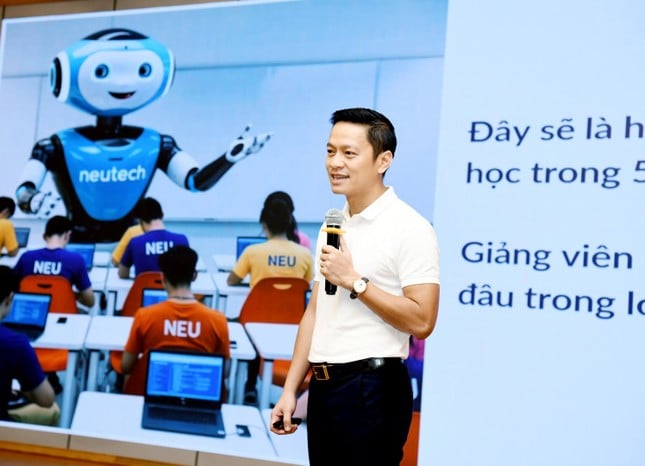
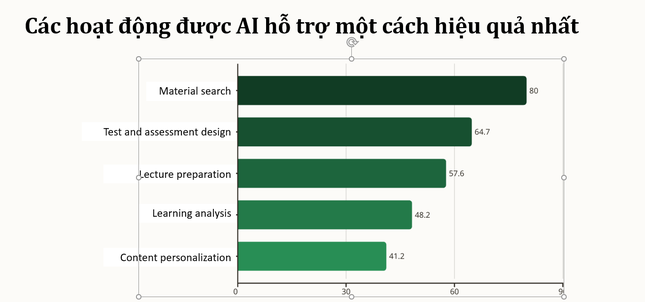
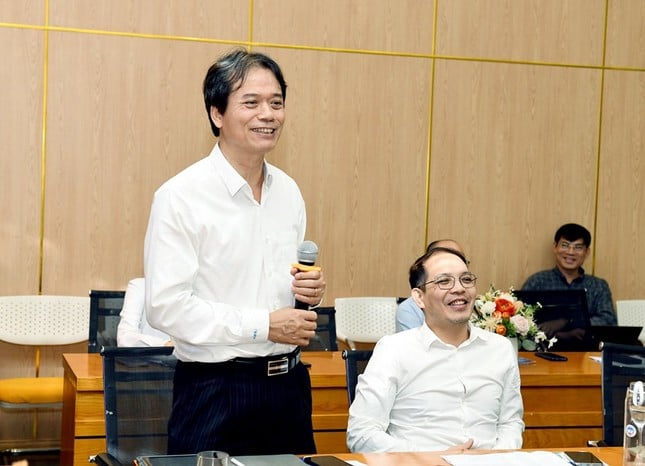
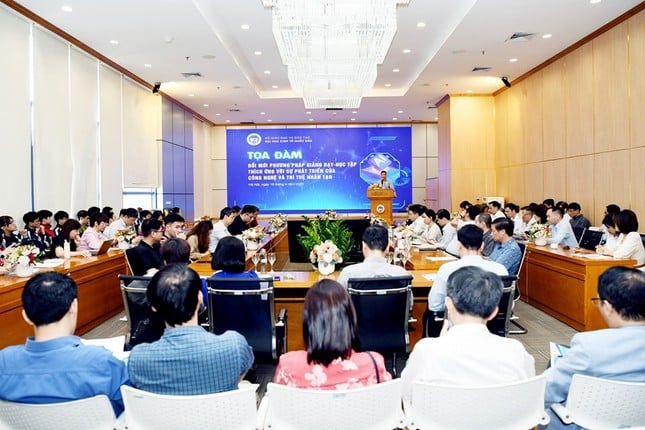
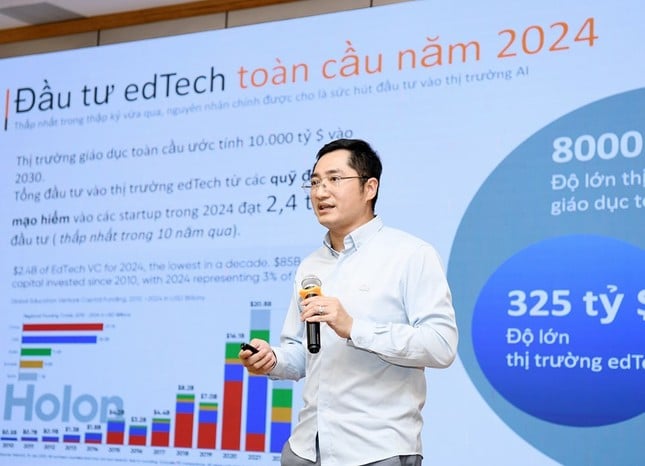
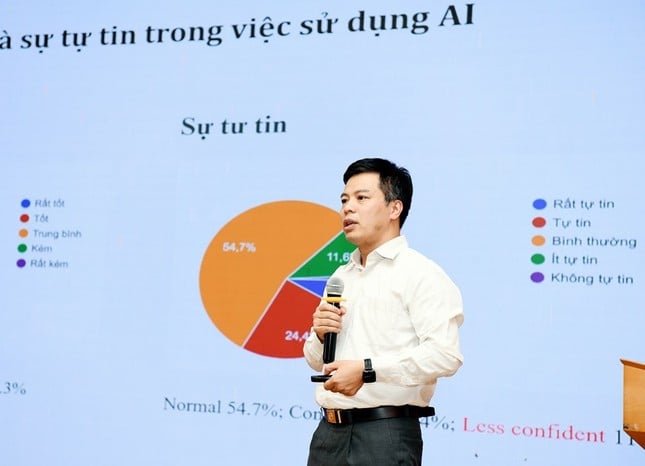

![[Photo] Cutting hills to make way for people to travel on route 14E that suffered landslides](https://vphoto.vietnam.vn/thumb/1200x675/vietnam/resource/IMAGE/2025/11/08/1762599969318_ndo_br_thiet-ke-chua-co-ten-2025-11-08t154639923-png.webp)




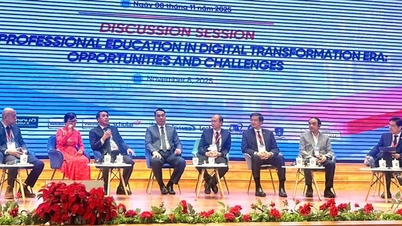





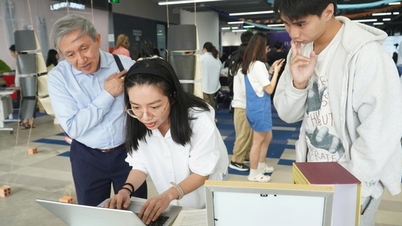



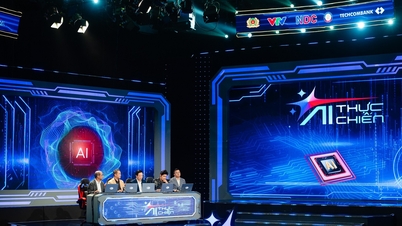




















![[Photo] "Ship graveyard" on Xuan Dai Bay](https://vphoto.vietnam.vn/thumb/1200x675/vietnam/resource/IMAGE/2025/11/08/1762577162805_ndo_br_tb5-jpg.webp)







![[Video] Hue Monuments reopen to welcome visitors](https://vphoto.vietnam.vn/thumb/402x226/vietnam/resource/IMAGE/2025/11/05/1762301089171_dung01-05-43-09still013-jpg.webp)




























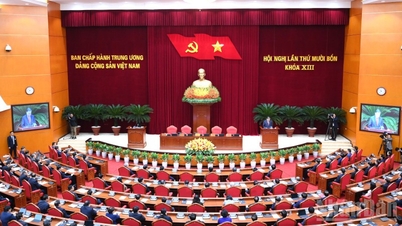





































Comment (0)